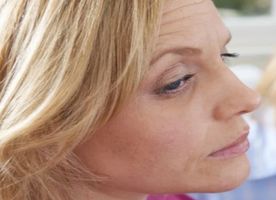Attention Deficit Hyperactivity Disorder (ADHD) in Pantai Dalam
Search and Compare the Best Clinics and Doctors at the Lowest Prices for Attention Deficit Hyperactivity Disorder (ADHD) in Pantai Dalam





Attention Deficit Hyperactivity Disorder (ADHD) at Serene Psychological Services in Kuala Lumpur, Malaysia
Our partner clinics in are accredited by the following associations
















































































































































No Time?
Tell us what you're looking for and we'll reach out to the top clinics all at once
WHY US?
















































































































































No Time?
Tell us what you're looking for and we'll reach out to the top clinics all at once
What does the Procedure Involve?
Medications
Medication is usually an important part of treatment in children with ADHD. There are two main types of ADHD medications:
-
Stimulant medications (psychostimulants) can boost and balance levels of brain chemicals known as neurotransmitters. Examples of stimulants are amphetamines and methylphenidates. The right medication and the right dose vary from one person to another, so it may take some time to find out what is right for you or your child.
-
Non-stimulant medications can be used if stimulants do not work well for you or your child, or they cause side effects. Your doctor may prescribe atomoxetine and antidepressant instead of stimulants, but they usually work slower.
Therapy for children with ADHD
Children with ADHD may benefit from several different types of therapy. In therapy, kids usually learn by doing, meaning they draw, play, and talk. For older kids and teens, activities and ideas will be shared to build the skills they need. These include:
-
Behavior therapy can provide support for carers of children with ADHD, which usually involves parents and teachers. In behavior therapy, they will be taught behavior-changing strategies, such as timeouts and token reward systems, to deal with difficult situations.
-
Social skills training involves your child taking part in role-play situations. The aim of social skills training is to teach them how to behave in social situations.
-
Parent training and education program is specially tailored to help you learn ways to talk to your child, as well as ways to play and work with them to improve their behavior and attention.
-
Psychotherapy is designed to help older children with ADHD to explore negative behavior patterns, talk about problems that bother them, and learn ways to deal with their condition.
-
Family therapy can help parents and siblings deal with the stress of living with a family member who has ADHD.
Therapy for adults with ADHD
Counseling for adults with ADHD usually includes psychological counseling (psychotherapy), learning skills, and education about the disorder. Psychotherapy can help you learn how to reduce impulsive behavior, improve your organizational and time management skills, develop better problem-solving skills, improve self-esteem, develop strategies to control your temper and cope with past failures (academic, work, or social), and learn ways to improve relationships with your family, friends, and co-workers.
The following are the most common types of psychotherapy for adults with ADHD:
-
Cognitive-behavioral therapy (CBT) is a talking therapy to help you manage your problems by changing the way you think or behave. It can help you deal with life challenges, such as work or relationship problems.
-
Marital counseling and family therapy are aimed to help your loved ones cope with the stress of living with someone who has ADHD. This therapy also helps them learn what they can do to help you.
How Long Should I Stay in Pantai Dalam for a Attention Deficit Hyperactivity Disorder (ADHD) Treatment?
ADHD is a persistent disorder that often continues from childhood into mature years. Therefore, the Attention Deficit Hyperactivity Disorder (ADHD) treatment is generally an extended, continuous process rather than a one-time intervention. Based on the severity of symptoms and the effectiveness of the treatment plan, adaptations may be required over time.
Patients are advised to anticipate a prolonged stay in Pantai Dalam, usually spanning a few weeks to several months, due to the need for routine follow-ups, changes in medication, and therapeutic sessions. The duration of stay in Pantai Dalam will predominantly hinge on the Attention Deficit Hyperactivity Disorder (ADHD) treatment's progression and the guidance offered by the healthcare provider.
What's the Recovery Time?
The recovery time for Attention Deficit Hyperactivity Disorder (ADHD) treatment differs from usual surgical procedures considering ADHD is a chronic disorder often necessitating a lasting approach. Recovery, in this respect, signifies an improvement in ADHD symptoms, which can be observed within a few weeks following the commencement of medication.
Nevertheless, the overall recovery duration, meaning reaching a stable phase of symptoms, differs among individuals. It generally hinges on the person's response to the medication, the effectiveness of psychotherapy, behavior adjustments, and the rollout of particular strategies for a healthier lifestyle. Patients usually engage in the Attention Deficit Hyperactivity Disorder (ADHD) treatment over an extended timespan, refining their treatment plan continually under the expert guidance of their healthcare professional.
What About Aftercare?
You will be given advice on how to live with ADHD or how to care for a child with ADHD.
For adults with ADHD, the following advice may be helpful:
-
Blow off steam by exercising regularly.
-
Make lists, stick up reminders, keep diaries, and set aside some time to plan what you need to do if you find it hard to stay organized.
-
Find ways to help you relax, such as learning relaxation techniques.
-
Join a support group.
For parents with children who have ADHD:
-
Plan the day to let your child knows what to expect and set routines and schedules.
-
Set up your own incentive schemes, such as using points or star charts for good behaviors.
-
Ensure your child gets lots of physical activity.
-
Ensure your child goes to bed at the same time every night and gets up at the same time in the morning.
What's the Success Rate of Attention Deficit Hyperactivity Disorder (ADHD) Treatment?
The processes employed in ADHD treatment have been demonstrated to be notably effective in mitigating the symptoms of the disorder. Stimulants are the most effective medications for children with about 70% to 80% responsiveness rates. The success rate of ADHD treatment is further enhanced due to psychotherapy and behavioral approaches.
In Pantai Dalam, patients' responses to their Attention Deficit Hyperactivity Disorder (ADHD) treatment are individual, and success rates can differ accordingly. Nevertheless, with a professional healthcare team in place and adherence to the suggested treatment regime, most patients can successfully control their symptoms and upgrade their lifestyle quality. Regular communication with your healthcare professional to tweak the treatment strategy as required is essential for ensuring the best results.
Are there Alternatives to Attention Deficit Hyperactivity Disorder (ADHD) Treatment?
While medications and psychotherapy form the backbone of ADHD treatment procedures, there are various alternative treatments and therapies available. These can be beneficial as complementary methods alongside the traditional Attention Deficit Hyperactivity Disorder (ADHD). Alternative treatments can involve a range of options such as dietary modifications, neurofeedback, and certain types of yoga and meditation.
However, it's essential to consult with your healthcare provider before integrating these alternative methods into your Attention Deficit Hyperactivity Disorder (ADHD). They can provide expert advice and monitor your response to ensure that the alternative treatments contribute positively to your overall treatment in Pantai Dalam.
For children with ADHD, the FDA approved a new medical device to treat children with ADHD who are around 7 to 12 years old and not taking ADHD medicine. This device is called the Monarch External Trigeminal Nerve Stimulation (etns) system. It can be used at home under parental supervision when the child is sleeping. For adults with ADHD, there is little research that indicates alternative treatments can reduce symptoms.
This information has been accurately sourced and verified by a medical professional for its accuracy, however, we strongly recommend you to consult with your doctor before pursuing medical procedures overseas.

